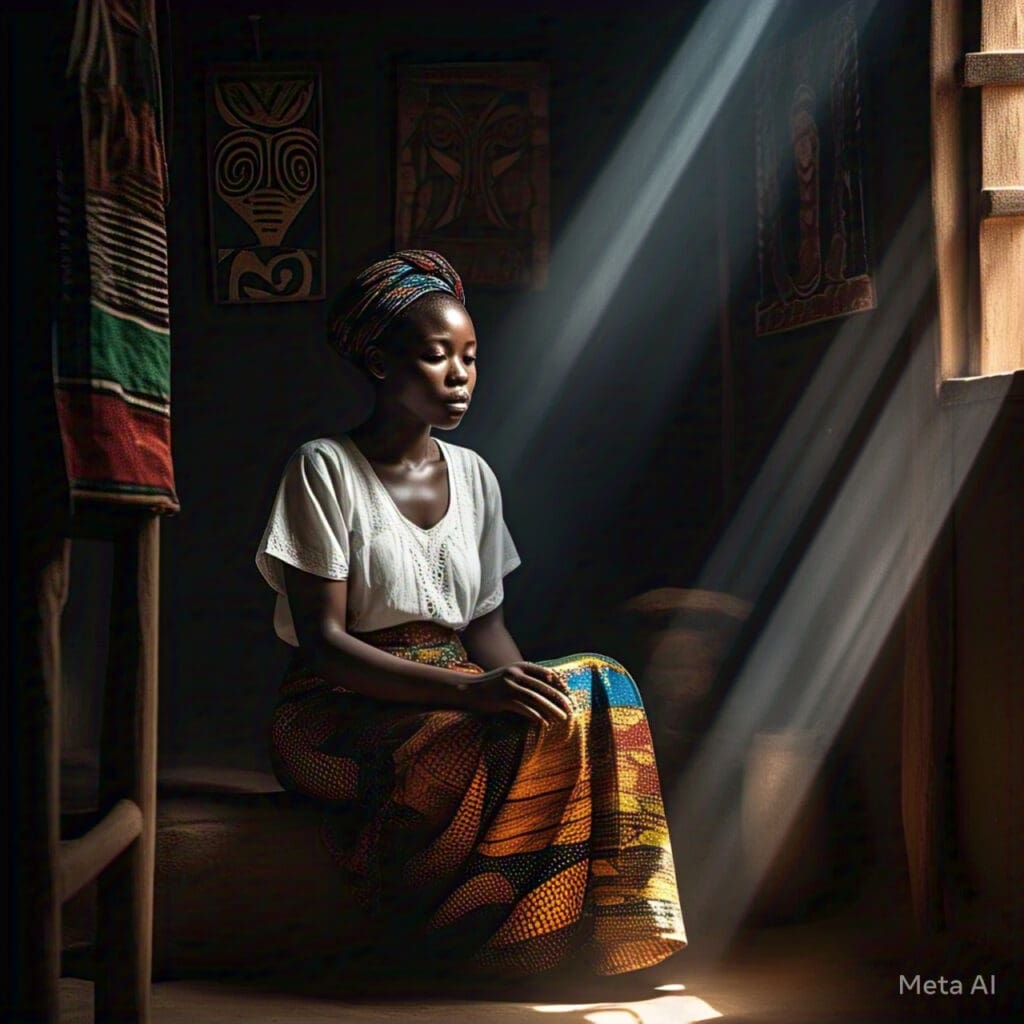Domestic violence is a pervasive and deeply ingrained issue in Nigeria, affecting individuals across all socio-economic, religious, and ethnic backgrounds.

It manifests as a pattern of abusive behaviors within intimate relationships or family settings, with the intent to control or dominate a partner. These behaviors can take various forms, including physical, emotional, sexual, and economic abuse.
The consequences of domestic violence are far-reaching, impacting not only the immediate victims but also their families, communities, and society as a whole.
Despite numerous efforts to combat it, domestic violence continues to thrive, often concealed behind closed doors due to societal stigma, victim-blaming, and a culture of silence.
Addressing this multifaceted issue necessitates a comprehensive and collaborative approach involving individuals, communities, the government, and civil society organizations.
It requires challenging deeply entrenched cultural norms, strengthening legal frameworks, and providing adequate support and protection to victims.
What is Domestic Violence
Domestic violence encompasses a wide range of abusive behaviors that occur within the context of an intimate or family relationship. It is characterized by a power imbalance, where one partner seeks to control and dominate the other through various means.
Forms of Domestic Violence
- Physical Abuse: This includes any act of violence that causes physical harm or injury, such as hitting, slapping, kicking, choking, or using weapons.
- Emotional Abuse: This involves undermining a partner’s self-esteem and emotional well-being through insults, humiliation, intimidation, isolation, and gaslighting.
- Sexual Abuse: This includes any non-consensual sexual activity, such as rape, forced sexual acts, or sexual harassment.
- Economic Abuse: This involves controlling a partner’s access to financial resources, such as denying them employment, limiting their spending, or withholding money.
Causes of Domestic Violence in Nigeria
The causes of domestic violence in Nigeria are complex and multifaceted, stemming from a confluence of cultural, social, economic, and legal factors.
- Cultural and Traditional Beliefs: Patriarchal norms and gender stereotypes that perpetuate male dominance and female subordination are deeply ingrained in Nigerian society. These norms often justify men’s control over women and condone violence as a means of discipline or control.
- Economic Hardship: Poverty, unemployment, and economic inequality create financial stress and frustration, which can increase the risk of domestic violence. In some cases, economic dependence on a partner can also trap victims in abusive relationships.
- Weak Law Enforcement: Despite the existence of laws criminalizing domestic violence, such as the Violence Against Persons Prohibition (VAPP) Act, enforcement remains weak and inconsistent. This lack of accountability emboldens perpetrators and discourages victims from seeking justice.
- Lack of Awareness and Education: Many people in Nigeria are unaware of what constitutes domestic violence or where to seek help. This lack of knowledge can prevent victims from recognizing abuse and accessing support services.
- Religious Influence: Some religious teachings are misinterpreted to justify male authority and discourage women from challenging their husbands’ behavior. This can create a climate of acceptance for domestic violence and prevent victims from seeking help.
- Alcohol and Drug Abuse: Substance abuse can impair judgment and increase aggression, contributing to violent behavior within the home.
Impact of Domestic Violence in Nigeria
The impact of domestic violence is devastating and far-reaching, affecting individuals, families, and communities in numerous ways.

- Physical and Psychological Trauma: Victims of domestic violence often suffer from physical injuries, as well as psychological trauma such as depression, anxiety, post-traumatic stress disorder (PTSD), and low self-esteem.
- Economic Consequences: Domestic violence can lead to job loss, reduced productivity, and financial dependence on the abuser, making it difficult for victims to leave the relationship.
- Impact on Children: Children who witness or experience domestic violence are at increased risk of emotional and behavioral problems, poor academic performance, and future involvement in abusive relationships.
- Social Isolation: Victims of domestic violence may become isolated from friends, family, and support networks, further increasing their vulnerability and dependence on the abuser.
- Increased Risk of Homicide: In extreme cases, domestic violence can escalate to homicide, resulting in the death of the victim.
Solutions to Domestic Violence in Nigeria
Addressing domestic violence in Nigeria requires a multi-pronged approach that combines legal reforms, social services, public awareness, and community engagement.

- Strengthening Laws and Their Enforcement: The government must ensure that laws against domestic violence are effectively implemented and enforced, and that perpetrators are held accountable for their actions.
- Economic Empowerment for Victims: Providing victims with economic opportunities, such as job training, financial assistance, and access to education, can help them achieve financial independence and leave abusive relationships.
- Public Awareness Campaigns: Raising awareness about domestic violence through media campaigns, educational programs, and community outreach can help challenge harmful attitudes and beliefs, and encourage victims to seek help.
- Counseling and Support Services: Expanding access to counseling, shelters, hotlines, and other support services can provide victims with the help they need to escape abusive situations and rebuild their lives.
- Engaging Men and Boys: Encouraging men and boys to challenge harmful gender norms and promote respectful relationships is essential for preventing domestic violence.
- Community Involvement: Engaging community leaders, religious institutions, and traditional authorities in efforts to prevent and respond to domestic violence can help create a culture of support and accountability.
The takeaway
Domestic violence is a serious challenge in Nigeria that needs immediate attention and action. To tackle this issue effectively, it’s important to understand what causes it, improve laws to protect victims, and offer strong support to those affected.

By taking these steps, Nigeria can work towards a future where everyone feels safe and secure in their own homes.



